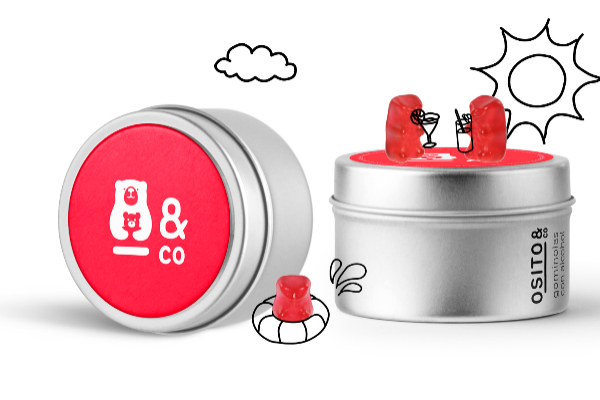- Consumption: Sweet feeds the empty Spain
Ander Méndez saw a bright future in the business he had set up with two friends: alcohol-soaked jelly bears. Until this new Spanish company sparked the wrath of the German giant Haribo . The conflict has erupted due to the supposed similarity between the jelly bears produced by this Basque company and the well-known German delicacies.
"As usual in these cases, Haribo has initiated legal procedures to protect its registered trademarks," a company spokesperson confirmed. "The sky has fallen on my head," says Ander Méndez, CEO of Teddy Bears with alcohol , formally notified by Haribo's lawyers a couple of weeks ago.
The requirement, consulted by Afp, argues that there is "great similarity" between the two confectioners and that "drunk bears" violate Haribo's intellectual property rights. However, the German group founded 100 years ago in Bonn offers a "friendly" solution to the three young Basque entrepreneurs, but requires drastic measures.
The same letter asks you, among other things, to stop producing and selling "any product under the symbol in dispute", to abandon your registered trademark in Spain and accept "transfer the administration and ownership of the domain ositosconalcohol.com " to Haribo .
"We do not harm your brand and (the bears) are not the same," Haribo's ones are just a few millimeters, Ander Méndez is outraged, accusing the German company of wanting to "appropriate" its creation.
Méndez and his partners are studying the answer with a lawyer, although "they do not have many resources to carry out a lawsuit" with a large company that claims to reserve the right to take "all necessary legal actions" if the three young people do not follow their instructions.
15 bears, a cup
Ander Méndez acknowledges that they are "terrified" in front of a large company that "can sink them if he wishes", although he assures that the production and commercialization of his "drunk bears" will continue, because "we see that people like it".
Founded in January 2019, the new company sells its products on the Internet and in bars and clubs in Spain. Together with Ander Méndez, Julen Justa , 24, also has an engineering degree, while Tamar Gigolashvili , 25, studied law and administration.
The three young entrepreneurs quickly received support for innovation from the Basque city council of Getxo . This aid caused a first controversy, when the opposition denounced that it was an incitement to alcohol consumption by young people.
The bears are sold in cylindrical metal boxes, stamped with the Ositos & Co logo. Each candy contains 15 degrees of alcohol and is of five colors and flavors: rum-pineapple , gin-strawberry , vodka-orange , whiskey-cola and tequila-lemon .
A glass of wine is equivalent to approximately 8 bears, and a gin and tonic between 15 and 17, explains Ander Méndez.
Haribo had already sued Swiss chocolate maker Lindt in 2012, considering that his chocolate bears wrapped in gold paper were an imitation. After three years of litigation, the highest German court ruled that Haribo was wrong.
Two centimeters high, the Haribo Goldbären (golden bears), created in 1922, are produced and sold on all continents.
According to the criteria of The Trust Project
Know more- savings and consumption
- economy
ConsumptionEl cava, a new cession of Pedro Sánchez to Catalonia for his investiture
Savings and Consumption There are trains, highways, seals, housing and banks, air rates are maintained and gas is low: prices will change in 2020
January sale Sale 2020 in Zara, El Corte Inglés, Stradivarius, Mango ...

